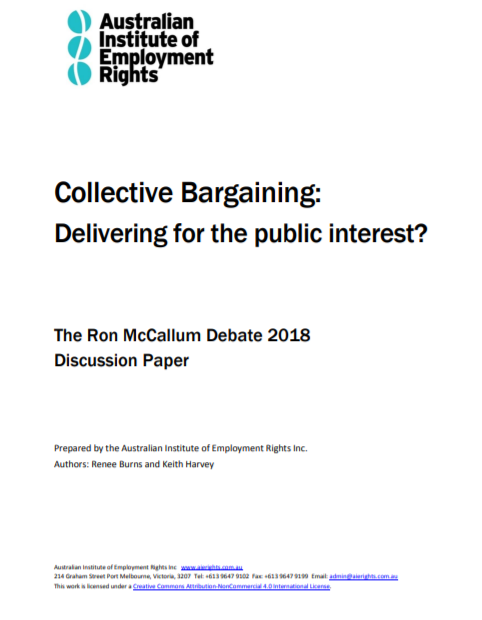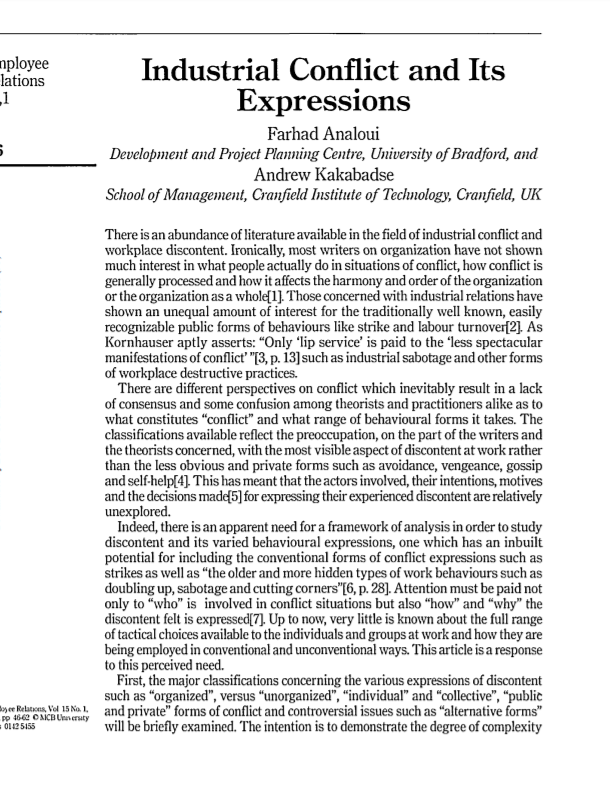
Summary
This study assesses the effectiveness of the organisational-level collective bargaining model present in Australia. It concludes that the present model is failing, with less collective bargaining agreements being reached, resulting in wage stagnation despite the state-level increase in economic prosperity. It suggests that greater implementation of more drastic measures, like striking, and greater inclusion for the parties allowed in the bargaining process is necessary to develop social dialogue further.
For the original source, please click here





